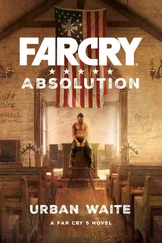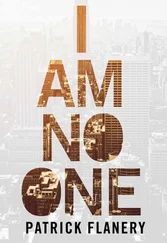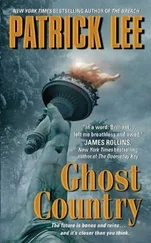‘ Ag , he’s used to it now I guess.’
‘Not easy.’
‘Naaaa. He likes it,’ he said, like a man insisting a woman enjoys being knocked around. ‘You have any kids?’
‘No.’
‘Husband?’
‘I’m going to my mother’s. She lives near Ladybrand. You can see the peaks of the Malotis from her back door.’ I know you said this, a fact I can count on, me as the excuse, the point of destination. But I lived nowhere near Ladybrand. Is it ungenerous for me to think I was always a convenient excuse for you?
‘I’ll take you as far as Port Elizabeth, but you’ll have to find your own way from there.’ Bernard began to hum along to another song, a woman lamenting the loss of three husbands. He knew it by heart, anticipated each note, could not resist mouthing the words, then singing himself. ‘Your mother know you’re coming?’
‘I’ll phone her when we stop.’
‘That’s if the phones are working.’
*
My biographer pretends to be American now, but there is something unfinished about him that I know like my own breath. Of course, I remembered Sam at once. Rather, in Amsterdam I half-recognized him, and in the weeks that followed learned to trust my memory of him. How could I forget? I do not acknowledge this to him when he sits so uncomfortably before me, squirming on the couch in my study, his palms sweating in this room that I always keep cool. It would be a lie to say I remain silent about our connection because I wish to torture him. I have no such wish. In truth, I am terrified of what may yet be revealed.
So call it, my dear daughter, my Laura, a kind of restitution — my letting Sam in, at long last, much later than I should. I have been tardy in so many things, terrified by so much else. Perhaps in letting him in, I will begin to understand why you did what you did.
But as the days pass and he asks ever more intrusive questions, I begin to see, just barely, the magnitude of what I have done by allowing Sam to come here, to sit in judgement before me, as my auditor, interlocutor, and elegist. I have summoned my own judge, perhaps even my own executioner — executioner of spirit and will and certainty if not in fact of life. I find it toxic to explain myself, but this is the bargain I have made — the mistake I’ve made at being intrigued by him, at recognizing someone I should have forced myself to forget, for my own sake, ignoring whatever his own needs might be, whatever my debt to him, real or imagined, might yet prove to be, and how it will be settled. What is it he needs? I sense it is not just one thing. I want to say How dare you? and know I cannot, because all this turning over of my old soil, hoping a poppy might emerge, was my idea. I wanted it, I agreed on him, which means he is, by my hand, not just conjured, but authorized . I will not be one of those who invite and then refuse to accept the consequences of that hospitality. He is my guest and I his hostage. I have invited him into my life because I was curious, because I thought, foolishly, that on my terms meant in my control . But he is always coming from more than one direction. He does not himself know what he thinks of me. I suppose there is a kind of power in that, but I am too exhausted for an exercise of power.
Was he always so tentative? How did he behave as a child? Is your account of him accurate, or itself a performance for my benefit? What would you make of him now, Laura? In your notebook, he is always cowering and flinching, clinging and trembling. I see some of that now, but also a more sinister quality. He is like a beast that feigns vulnerability to put its prey at ease.
*
A cloud of toxic smoke was moving along the coast, following the weather patterns. You could already see its black mass approaching behind you on the western horizon. Bernard stopped for fuel at a station that had its own generator; everywhere else along the coast was in blackout, as he had predicted. Sam was asleep in the cab, Tiger standing guard over him, panting his sticky breath. You knew that it would have been easiest just to leave them, but you pretended to phone me, you mimed a conversation, laughing in a way that you have never laughed with me. I told you that I couldn’t wait to see you, in a way that I had never told you. You had a story ready, you were going to tell them that plans had changed, that I was about to leave for our beach house — a house that does not exist — and that I was getting a little forgetful these days, had been confused about plans. But when you returned to the truck Sam was awake and staring at you, his body crossed into a tight knot against the vinyl upholstery. He asked if you were coming with them and before you could remember your invented story you said yes, because he looked afraid.
You bought a newspaper, peaches, another packet of Safari Dates, and bottles of water, which you put into your red rucksack on top of your clothes, folded neatly over your notebooks, hidden at the bottom.
The interior of the cab was ripe with human sweat and dog breath, vinyl and petrol, the rotten egg of the child’s skin. As Bernard drove, Sam sat looking blankly ahead at the road. Every few minutes the child turned his head to stare at you. His mouth pouted, grime at the corners, sometimes opening to show his small teeth. There were globs of sediment in his tear ducts. No one had taught him to care for himself, even to scratch the sleep from his eyes. You smiled at him as if to say, ‘Yes? Ask me anything you like, tell me something, what is wrong, why are you afraid?’, but Sam only stared at you, his mouth hard and impassive, eyes yawning vacant in his skull. It was not a normal child’s expression.
Near dawn, Sam’s nose began to bleed and you helped him with a tissue, pressing until the blood stopped. You wiped his face, and he turned away from you to bury it in the seat. You were accustomed to the smell of blood, but it was overpowering in the heat of the enclosed cab, the hot-iron stench. You opened your window, but Bernard told you to close it. ‘Gravel sometimes flies in. Rather I’ll put on the fan. We’ll stop soon. Always getting bloody noses. You’d think he was a girl. What a girl, Sam, what a little girl you are, hey?’
After another hour of driving Bernard stopped at a picnic ground. He parked the truck in the shade of a grove of eucalyptus trees clustered next to the road, their sharp-edged leaves rattling. It could have been anywhere along any road in the Cape. There was nothing to mark it as unique — the same stand of trees, the same concrete bench and picnic tables, at this one, perhaps, also a standpipe for water. There were no toilets, not even a barbecue pit or emergency phone.
‘I’m going to sleep,’ Bernard said. ‘You can stay and wait, or you can leave. Suit yourself. Don’t mind your company, but don’t want to keep you if your mother’s expecting you.’
‘What about the boy?’
‘Sam’s fine.’
You walked around the picnic ground, looking for somewhere to sit out the day, while Bernard stretched along the length of the seat. Tiger was between his legs, the dog’s tail slapping the man’s gut. Sam slipped out of the cab after you and sat at the base of a tree, fiddling the earth with a stick, boring into the dust between his feet, red canvas shoes, withdrawing the stick, boring again, deeper, withdrawing, a chimpanzee using a stick to harvest ants from a hole. His dark hair was red with a layer of dust and his skin was peeling from sunburn.
You knew it would have been wiser to keep moving, but the child kept staring at you, opening his mouth as if to speak, then turning again to the stick and the earth, grinding and digging into the soil, up and down, one hole after another.
Cars were passing. If you wanted to play your part properly you would have continued your journey. Instead, you ate a peach and read the newspaper, which told you nothing you did not already know, nothing the authorities did not want everyone to know. Terrorists would be blamed. At that moment the police were raiding several properties and two remote farms suspected of operating as training camps. Did you imagine the knock on my own door that morning, the men, the memories that knock conjured of an earlier knock, many years ago, on the morning after a similarly horrific night? You dismissed the consequences for the rest of your family — you had to in order to survive. I understand that, at least.
Читать дальше












